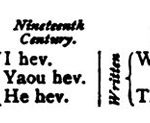It would perplex the keenest ethnologist to disentangle the ravelled skein of an ordinary East Anglian pedigree. What Defoe says of the Englishman in general lacks no point when applied to the Suffolker: “Fate jumbled them together, Heaven knows how. Whate’er they were, they’re true-born English now”.
The History Of Suffolk
Later Days.
In later political history the most prominent Suffolk figures are Charles, Marquis Cornwallis, and Augustus Henry Fitzroy, Duke of Grafton. To trace the history of agricultural improvement and agricultural depression in Suffolk would be a task only suited for an expert with ample space for unfolding his subject.
Suffolk During The Reigns Of William III., Anne, And George I.
We must not tarry over local rejoicings; on account of the Revolution, but glance at an event in Ipswich in the middle of March, 1689, when Louis XIV. had declared war against the Dutch, and William, according to the treaty of Nimeguen, was sending troops to help them.
From The Long Parliament To The Revolution.
No one ought to expect any pleasure from the annals of the Great Rebellion period. There is sensation enough in this chapter, chiefly the sensation of shame and degradation; records enough, the records of perverted efforts after Reverence, Truth and Righteousness. What is painful in every sense of the word to write can hardly be delectable reading. When men would do good, evil was present with them.
Early Stuart Period.
Newmarket, as many of my readers will know, is a town sacred to that animal which is counted but a vain thing to save a man.
